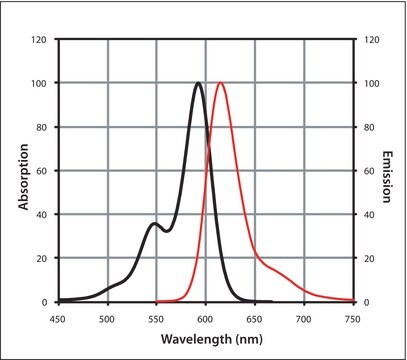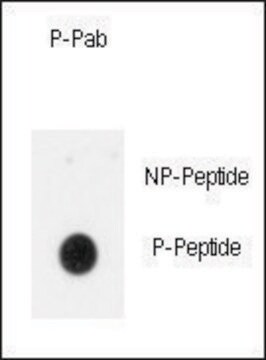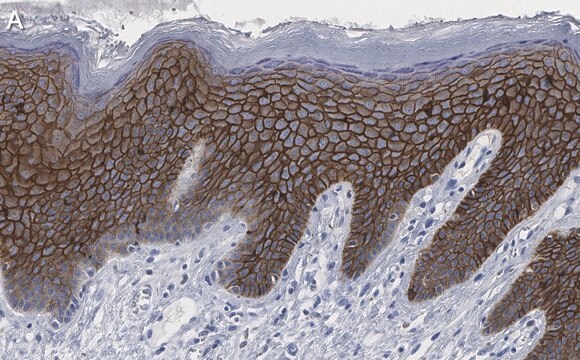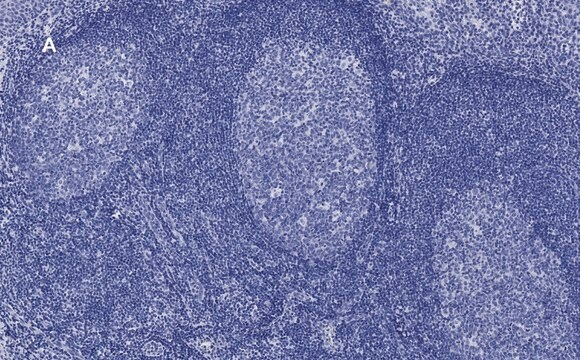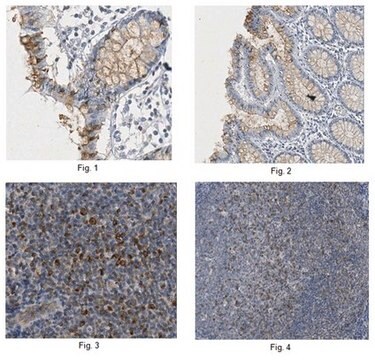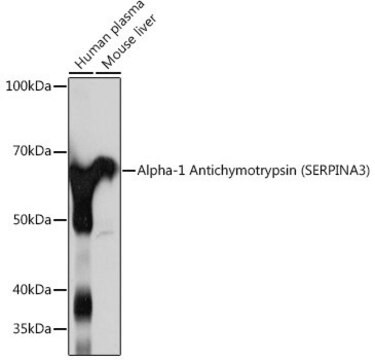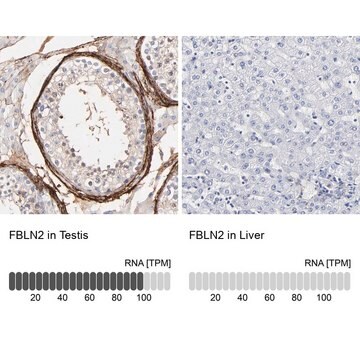ZRB1240
Anti-GLUT-4 Antibody, clone 1M13 ZooMAb® Rabbit Monoclonal

recombinant, expressed in HEK 293 cells
About This Item
Prodotti consigliati
Origine biologica
rabbit
Livello qualitativo
Ricombinante
expressed in HEK 293 cells
Coniugato
unconjugated
Forma dell’anticorpo
purified antibody
Tipo di anticorpo
primary antibodies
Clone
1M13, monoclonal
recombinant monoclonal
Nome Commerciale
ZooMAb® learn more
Stato
lyophilized
PM
calculated mol wt ~54.79 kDa
observed mol wt ~53 kDa
Reattività contro le specie
mouse, rat, human
Reattività contro le specie (prevista in base all’omologia)
monkey, bovine
Confezionamento
antibody small pack of 25 μL
Caratteristiche più verdi
Waste Prevention
Designing Safer Chemicals
Design for Energy Efficiency
Learn more about the Principles of Green Chemistry.
Convalida avanzata
recombinant expression
Learn more about Antibody Enhanced Validation
sustainability
Greener Alternative Product
tecniche
flow cytometry: suitable
immunocytochemistry: suitable
immunohistochemistry (formalin-fixed, paraffin-embedded sections): suitable
western blot: suitable
Isotipo
IgG
N° accesso UniProt
Categoria alternativa più verde
, Aligned
Condizioni di spedizione
ambient
Temperatura di conservazione
2-8°C
modifica post-traduzionali bersaglio
unmodified
Descrizione generale
Each ZooMAb antibody is manufactured using our proprietary recombinant expression system, purified to homogeneity, and precisely dispensed to produce robust and highly reproducible lot-to-lot consistency. Only top-performing clones are released for use by researchers. Each antibody is validated for high specificity and affinity across multiple applications, including its most commonly used application. ZooMAb antibodies are reliably available and ready to ship when you need them.
Specificità
Immunogeno
Applicazioni
Evaluated by Western Blotting in HeLa cell lysate.
Western Blotting Analysis: A 1:1,000 dilution of this antibody detected GLUT-4 in HeLa cell lysate.
Tested Applications
Western Blotting Analysis: A 1:1,000 dilution from a representative lot detected GLUT-4 in NIH3T3, HepG2, and L6 cell lysates.
Immunocytochemistry Analysis: A 1:1,000 dilution from a representative lot detected GLUT-4 in HeLa, A431, HepG2, and NIH 3T3 cells.
Immunohistochemistry (Paraffin) Analysis: A 1:100 dilution from a representative lot detected GLUT-4 in human heart tissue sections.
Flow Cytometry Analysis: 0.1 μg from a representative lot detected GLUT-4 in one million HeLa cells.
Note: Actual optimal working dilutions must be determined by end user as specimens, and experimental conditions may vary with the end user
Descrizione del bersaglio
Stato fisico
Stoccaggio e stabilità
Note legali
Esclusione di responsabilità
Non trovi il prodotto giusto?
Prova il nostro Motore di ricerca dei prodotti.
Codice della classe di stoccaggio
11 - Combustible Solids
Classe di pericolosità dell'acqua (WGK)
WGK 1
Punto d’infiammabilità (°F)
Not applicable
Punto d’infiammabilità (°C)
Not applicable
Scegli una delle versioni più recenti:
Certificati d'analisi (COA)
Non trovi la versione di tuo interesse?
Se hai bisogno di una versione specifica, puoi cercare il certificato tramite il numero di lotto.
Possiedi già questo prodotto?
I documenti relativi ai prodotti acquistati recentemente sono disponibili nell’Archivio dei documenti.
Il team dei nostri ricercatori vanta grande esperienza in tutte le aree della ricerca quali Life Science, scienza dei materiali, sintesi chimica, cromatografia, discipline analitiche, ecc..
Contatta l'Assistenza Tecnica.